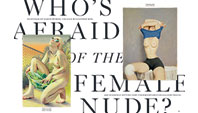 |
1. New York’s latest cover featured Jessica Pressler’s profile of Cynthia Nixon, whose insurgent run for governor has pushed Andrew Cuomo to the left (“Cynthia Nixon Has Already Won,” April 16–29). Politico’s Albany-bureau chief, Jimmy Vielkind, wrote of it, “If you needed any evidence of how @CynthiaNixon’s run for #nygov has more heft than @ZephyrTeachout’s in 2014, look at the cover of New York Magazine this week … probably the most comprehensive dive on Nixon’s political biography done so far.” Versha Sharma responded, “The only thing missing in this excellent Cynthia Nixon profile … is an explanation of New York’s crazy closed primary rules, and unreasonable voter registration deadlines, which work in Cuomo’s … favor.” Jennifer Keishin Armstrong, author of the forthcoming Sex and the City and Us, was, for one, thrilled by Nixon’s run: “My book documents the ways male-driven Hollywood refused to take the show seriously and repeatedly underestimated its significance. The same is happening when it comes to Nixon’s run, even though activism has been a major part of her life for nearly 20 years.” But not all readers were convinced of Nixon’s viability as a candidate. Dion Rabouin tweeted, “Anyone who thinks Cynthia Nixon can become governor of New York state by running on a platform to improve [the] MTA has literally never been north of Westchester.” Nixon has since won the endorsement of New York State’s Working Families Party, whose director, Bill Lipton, wrote: “Pressler’s story highlights how, in just a month, Cynthia’s bold progressive stances have forced Cuomo to quickly take action on issues he’s resisted for two terms: unifying Democrats in the State Senate, restoring voting rights to paroled felons, banning plastic bags, investing more in renewable energy, and shifting his formerly hardline position on marijuana.” Her campaign, he added, “is changing the debate about what is acceptable in our progressive New York.”
 |
2. Michael Slenske asked whether it is artistically justifiable for a man to paint a naked woman in the age of #MeToo (“Who’s Afraid of the Female Nude?” April 16–29). British artist Cathy Read responded, “I don’t have a problem with a man painting a female nude, as long as there is a sense of a person, identity, and respect. It’s objectification, degradation, disembodied torsos, and the like that make me cringe.” And Columbia University psychiatry professor David V. Forrest, who interviewed nude models for his study Beyond Eden: The Other Lives of Fine Arts Models and the Meaning of Medical Disrobing, responded: “The article touches upon many sensitivities, but to add another perspective, my interviews with nude models revealed that they only partly pose for the money, and that they feel proud, appreciated, and not exploited. They agree it enhances their self-esteem and body image, despite being physically demanding. They insist it is not sexual.”
3. Something has clearly gone wrong with the internet, and in interviews with Noah Kulwin, some architects of our digital world reflected on how we ended up here (“The Internet Apologizes,” April 16–29). @briecode tweeted, “This series of critiques of the internet by internet creators is really well put together. I suggest reading them all, and starting to think of how things could be different.” And @jimaley added, “Simultaneously horrifying and exhilarating. Brilliant work.” Anthony Citrano wrote, “There’s some very very thoughtful discussion here. But I am duty-bound to point out that none of these people (with the possible exception of Stallman, but even that’s a stretch) are even remotely ‘architects who built’ the Internet.” Leah Pearlman, the creator of Facebook’s like button, observed, “We haven’t always had Like counts, but we’ve always found ways to gauge our likability. Social media may be simplifying the process, or amplifying the experience, but it’s not creating it … I’ve been dodging the ‘What do you think about social media?’ question for years, perhaps because I’ve been conflicted. Now I realize, it’s okay to be conflicted. There are many sides to this story, all valid, all personal, and all changing all the time.”